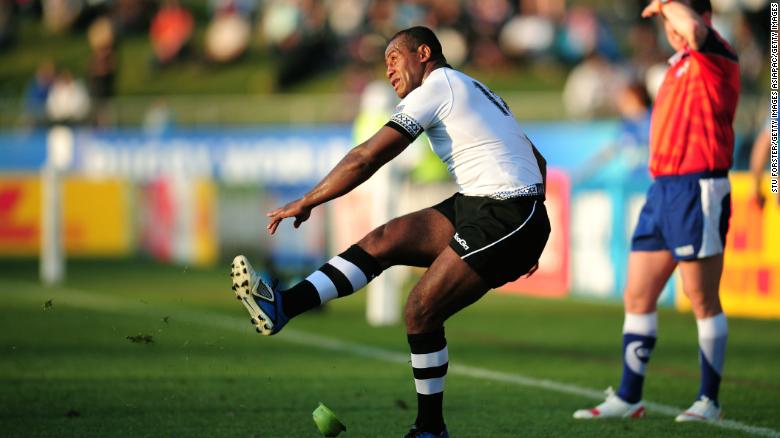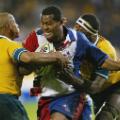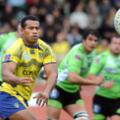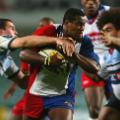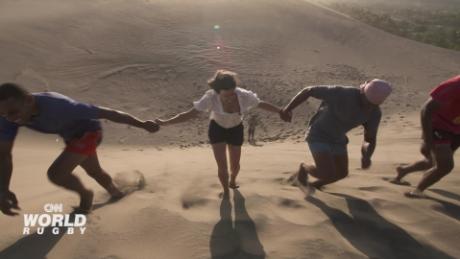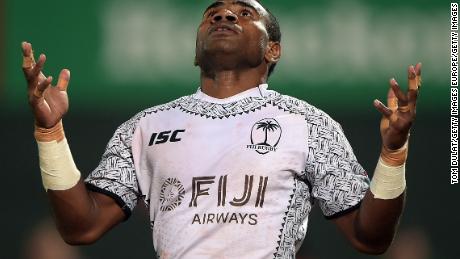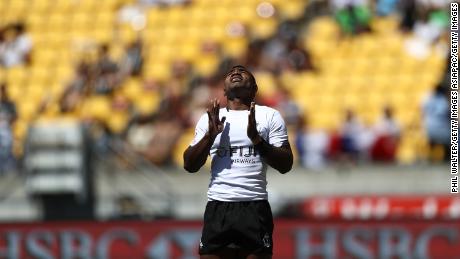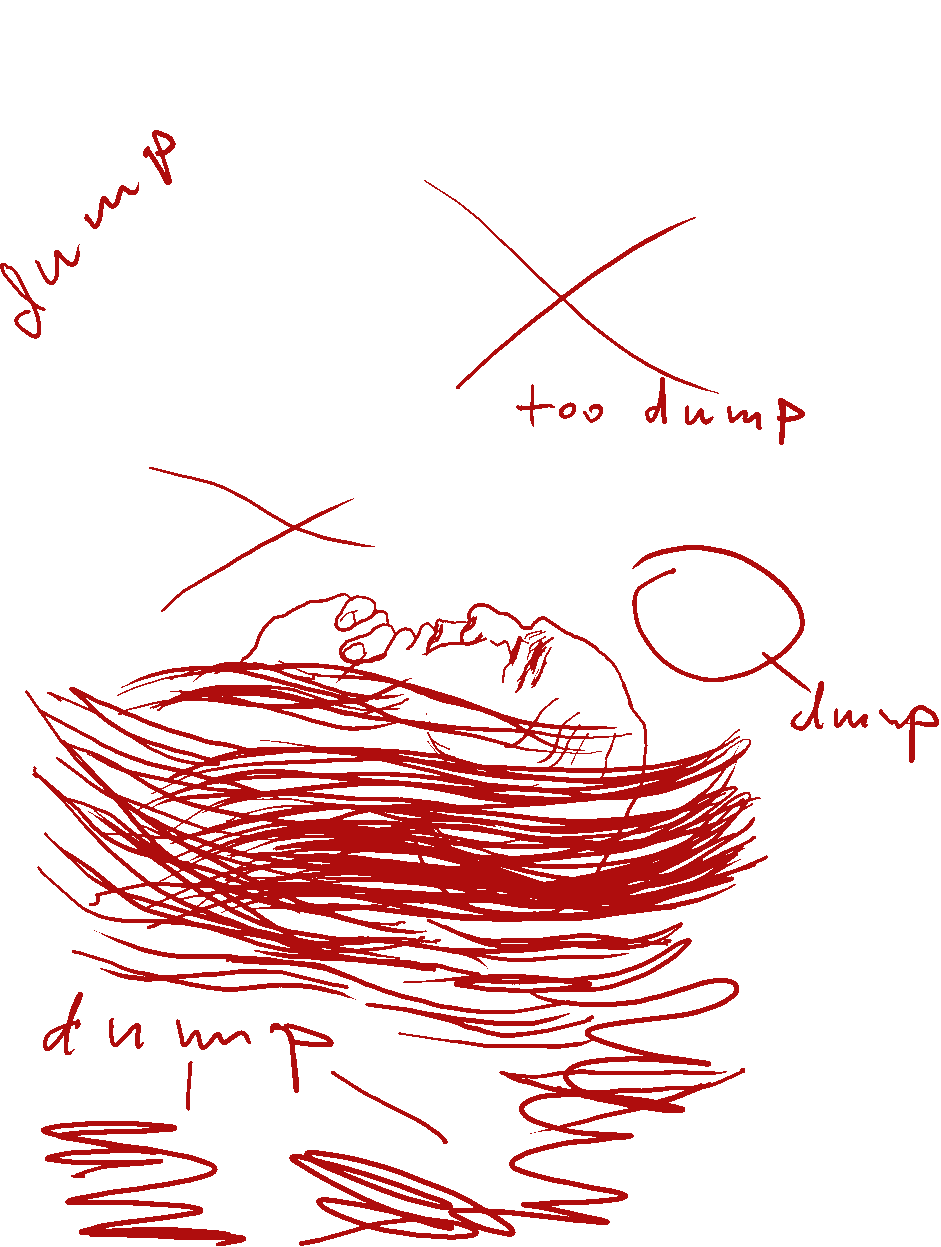Story highlights
- Ex-international Bai runs Rugby Academy Fiji
- Hopes to inspire country's youth with rugby
- Bai won 53 caps for Fiji
(CNN)He's won 53 caps for Fiji, scored more than 350 points, and traveled the world playing for club sides in seven different countries -- but today Seremaia Bai leads a life much closer to home.
The former rugby international has set up the Rugby Academy Fiji to inspire the youth in his native country -- children from troubled backgrounds who need the sport to get their lives back on track.
"I've tried to create this little environment where if the players don't have a proper home, when they come here they know they feel belonged and loved and that they're being cared for," Bai tells CNN World Rugby from the academy base in Suva, the Fijian capital.
Bai started the academy after retiring from rugby in 2016, aged 37, inspired by his own upbringing to give something back to Fiji.
He travels around the country to the smaller villages, running rugby clinics and offering what he calls "vocational training" -- basic education and life skills to benefit the players away from the pitch, too. The academy has 30-40 members, most of which are boys aged about 19, and some have gone on to be selected to play for schools in New Zealand.
While the academy is for all young Fijians, those from difficult and impoverished backgrounds have a special place in Bai's heart.
"It was my life story," he says. "I was one of the dropouts. I didn't have an opportunity for someone to come and teach us or talk to us about what he did to make the national team or gain a contract.
"When you understand life here in the tiny villages -- no formal education, tough backgrounds -- there's kind of no hope. Rugby was the hope [for me].
"And I thought to myself, maybe I have to go back and try and empower, inspire the younger kids, show them that you can still dream."
Early challenges
Bai was raised by his mother, who earned $50 a week as a housekeeper. He left school at the age of 15, but he found his calling with rugby.
It was a tour with the Fiji under-19 side that first prompted Bai to take the sport seriously. Upon returning home, he stopped drinking alcohol -- a discipline he keeps to this day -- and upped his training regime.
Two years later, aged 20, he made his Fiji debut against Japan.
A versatile back happy at flyhalf or center, Bai went on to play in two World Cups -- including a memorable quarterfinal clash with South Africa in 2007 -- and had notable club stints with French side Clermont Auvergne and England's Leicester Tigers.
Early days with the academy have been testing, with money and resources in short supply.
"This year was very challenging because these kids, they don't pay, they just come in," says Bai. "We need proper facilities, a proper ground. We pay for everything, sometimes out of our own pockets."
To play overseas?
Fiji has a wealth of rugby talent at its disposal. It is the country's national sport, and children will play anywhere they can -- in parks, on beaches or at roadsides.
The national team, ranked 10th in the world, has been the victim of a talent drain that's seen the best players pursue lucrative club contracts abroad.
"The raw product, we have it here," says Bai. "We have world-class players that can be seen on world stages. It concerns me that a lot of young players these days, they want to earn big money overseas and they don't actually think about a love of rugby."
Bai says moving abroad was a way of developing himself as a player and a person, although he never forgot his family back home in Fiji.
"In terms of your self-esteem, it's a massive boost," he says.
"Being here, it stops you going overseas because of the level of education or the level of English that you have. It's kind of an empowerment [to live abroad], you feel you have pride, a sense of achieving something.
"I told myself Fiji is always going to be Fiji; I'm always going to come back ... In a few years' time after rugby I want to be able to afford things. That's why I endured all the sad times and the happy times -- I knew I was going to come back."
True to his word, Bai did return. And Fiji's next generation of rugby stars are reaping the rewards.


